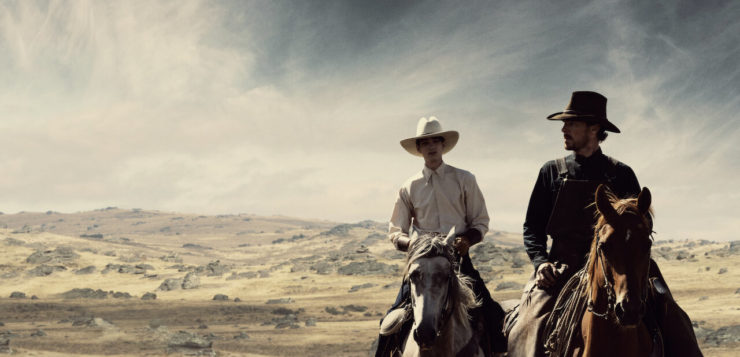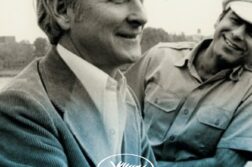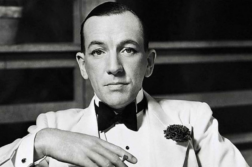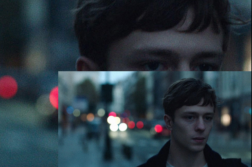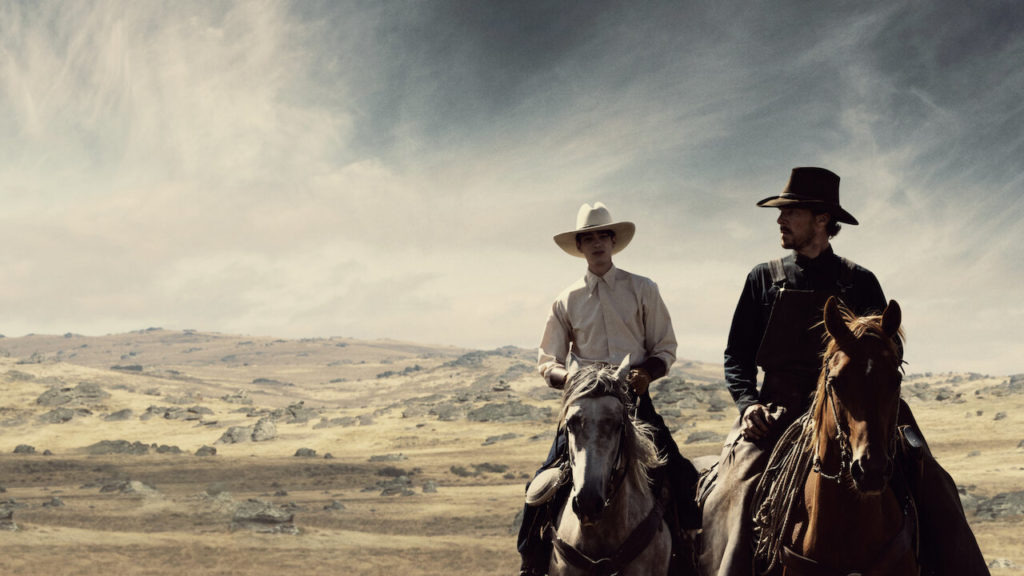
Jane Campion’s The Power of the Dog might best be described in paradoxical terms like “languid thriller.” Nominated for an Academy Award for Best Picture and regarded early on as the front runner, this film brings contemporary political consciousness to the classical concerns of the western — wide open landscapes, vulnerable women, hypermasculine men, and civilization in such an embryonic state that nearly all justice must be meted out on a person-to-person level. The pacing of the film is decidedly measured, but the conflicts are high stakes and riveting.
The film focuses on two small families which are eventually joined in marriage. The first is a pair of brothers— both cattle ranchers – Phil Burbank (Benedict Cumberbatch) and George Burbank (Jesse Plemons). Phil is slavishly devoted to the ranching lifestyle. He scorns modern comforts despite, we belatedly learn, his wealth and elite education, and relishes living with the animals and, as closely as possible, living like them. But one of his few human indulgences is sentimentality. As the film opens, he reminds his brother that they have reached a milestone, the 25th anniversary of their time as ranchers. He suggests that they celebrate it by going camping alone, in memory of their mentor, Bronco Henry. George, as it turns out, is profoundly less rugged, less romantic about ranching, and less effusive about Bronco Henry than Phil.
One might think George selfish and insensitive until the film brings the brothers into contact with the story’s second family, Rose Gordon (Kirsten Dunst) and her son Peter Gordon (Kodi Smit-McPhee), who run an inn where the brothers spend the night. All of the aforementioned characters could be right at home in a western film from seventy or more years ago except Peter, who seems anachronistically effete. He collects photos for his scrapbook of elegant women and handsome men who have no apparent relation to him besides their visual appeal. And one of his hobbies involves crafting paper flowers, which his mother takes such pride in that she invites him to place them as centerpieces at the inn’s dining tables. These small visual grace notes attract the complete derision of Phil, who seemingly vents his frustration with his brother toward the dainty Peter in an aggressive act of misdirection. When he sees the care that Peter has given to the flowers, he ignites one from a candle and then uses the flaming decoration to light a cigar. While Peter seems somewhat unsettled, his mother is the most affected by the insult. George lingers until all other patrons have left the dining room, and he goes into the kitchen and tries to console a sobbing Rose.
Someone reading only this summary would have every reason to suspect that the film is silly. But this trivial sequence sets a genuinely engrossing conflict in motion. George is drawn to Rose and courts her until she agrees to marry him. And suddenly, the early social hierarchy of the film is completely inverted. For all his privilege, bombast, and machismo, Phil is sensitive. He recognizes that his brother’s loyalty is now to his wife, and he is a third wheel. But beyond that, Phil has a secret, and there’s no way to discuss the relevance of the film to this magazine without spoiling this guarded detail from the midpoint of the film: Bronco Henry was much more than his guardian or mentor. The film never fully reveals whether they were actual lovers, but Phil’s attraction to Henry was expressly sexual and did not end with his death. His desire for the dead man is overwhelming and, once revealed, seems to explain every consequential aspect of this abrasive character. In a scene that makes full use of Cumberbatch’s admirable physique, Phil retreats into the woods to have private naked time with a scarf that bears Bronco Henry’s monogram. As sexy as the scene is, it also highlights the pain of Phil’s realization that George has a real lover (their connubial bliss is audible to Phil through their shared bedroom wall), while he has only his memories.
Perhaps for that reason, Phil does not persist in bullying Peter for the entirety of the film. Something shifts their relationship to cause Phil to embrace becoming Peter’s own Bronco Henry, which brings peace into the family for everyone but Rose, whose suspicions and anxieties are slowly driving her mad. At the sight of them riding off together toward the horizon, she runs screaming from the house, her cries going unheard by the two men. Phil’s newfound admiration for Peter does not extend to his mother. He spends a good portion of the film devising new ways to make her miserable, usually in situations where there are no witnesses. In one scene reminiscent of the dueling banjos in Deliverance, Phil overhears Rose trying to teach herself the piano; and from a nearby room, he expertly plays the same melody, literally underscoring her incompetence. The rugged outdoorsman is not above brandishing his privileged background for the sake of a little vengeance. His loathing for her and attraction to his new nephew blossom throughout the film.
The film has some minor flaws. The pace is the most polarizing. Also, Phil sometimes struggles to articulate simple thoughts, which makes little sense when he is otherwise the best educated person in the story. And not to be uncharitable, but the most daunting hole in the story is why handsome, muscular, filthy-rich Phil is suddenly so attracted to a gangly, prissy misfit like Peter when nothing about Phil has suggested that he is open-minded or that he sees the inner beauty in anyone. I’ve omitted some details about their relationship, but none of them really satisfy this quandary.
Power of the Dog won top honors at the British Academy Film Awards, Critics Choice, Golden Globes, and any number of other critics’ society ceremonies. The consistency of precursor wins tends to make most of the Oscar categories easy to predict, particularly in the acting races. But in a pivot that correlated to the chilling year in which Brokeback Mountain lost Best Picture to the nauseatingly treacly Crash, Power of the Dog surrendered to the more milquetoast CODA. Of Power of the Dog’s eleven nominations, it walked away with only Best Director — not a trivial win, but one that has come to represent the consolation prize for films that are too polarizing for conservative Academy voters. Some hostile comments about the film made by Sam Elliott during awards season, for which he later apologized, raise disturbing questions about whether the film industry wants to keep pace with television as a sexually inclusive medium. The fact that this film was produced by Netflix and not a traditional film studio is all the more telling in this regard. Moonlight’s Best Picture win appeared to represent a shift in the Academy’s ability to embrace a queer film for the top award, but Power of the Dog’s loss implies that Hollywood’s panic impulse persists.

Ken Stuckey is an assistant professor of English and Media Studies at Bentley University.


